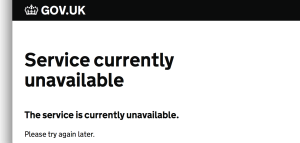According to Steve Thomas, solicitor and CEDR Mediator of financial disputes at Excello Law, events like these present an opportunity for personal liability attacks on directors from administrators, banks or creditors. Below Steve discusses with Lawyer Monthly how this can and should be avoided with good corporate governance.
It does not take an Insolvency lawyer to tell you that restaurants depend on customers to survive. Customers go to restaurants to enjoy the food and the atmosphere (whatever that may mean). However, when Restaurant chains collapse in Insolvency it means many creditors including HMRC are left out of pocket and in these cases, human nature dictates that one must find someone to blame.
Unfortunately, the Insolvency Act and the Companies Act assist in this task and the Law, presently drafted, gives ammunition to those who wish to find someone to blame.
Every director has duties and responsibilities - but they do not always know how far these can extend. The recent collapse of Jamie Oliver’s restaurant group serves as a timely reminder: all but three of his 25 UK restaurants closed after KPMG were appointed as administrators. Its demise once again highlights the risks that directors face from administrators, banks or creditors who pursue them personally by lifting the corporate veil.
KPMG’s statement concluded: "The group had recently undertaken a process to secure additional investment into the business and, since the beginning of this year, Jamie Oliver has made available additional funds of £4m to support the fundraising. However, with no suitable investment forthcoming and in light of the very difficult current trading environment, the directors resolved to appoint administrators."
During a previous restructuring, Oliver also provided personal guarantees to HSBC and Brakes, a large food supplier. According to media reports, ‘they are poised to pursue’ Oliver - his guarantees would allow them to claim against him personally for unpaid bills.
So what personal liability can directors and banks face? It is self-evident that such situations should be avoided, which is made more likely when good corporate governance is exercised. The law is a potential minefield for the unwary: the Insolvency Act 1986 and the Companies Act 2006 both contain elements which can be used to attack directors personally.
Using this legislation, administrators and liquidators launch attacks against them. Frequently, directors have no responsibility for a company’s downfall, which often arises from market conditions rather than incompetence or mismanagement. But they still find themselves being subject to litigation from an office holder with unlimited resources.
Frequently, directors have no responsibility for a company’s downfall, which often arises from market conditions rather than incompetence or mismanagement.
As a wealthy entrepreneur, Oliver will have been advised of the extent of his personal liabilities. Others are not so fortunate. A director, usually jobless, is left to their own devices to faces questions and allegations that they must answer, routinely without access to company records which are in the hands of their accusers.
What about directors’ personal liability? Under Insolvency law, there is no formal distinction between the duties and liabilities of executive directors and non-executive directors. Every director can incur personal liability, civil and criminal, for their acts or omissions in directing the company.
The Insolvency Act can make a director liable to contribute personally to an insolvent company’s assets for the benefit of its creditors if: ‘at some time before the commencement of the winding up of the company, that person knew or ought to have concluded that there was no reasonable prospect that the company would avoid going into insolvent liquidation.’
But is that fair if market forces are to blame? It’s debatable. Penalising directors can shatter any protection the corporate structure may provide. Manifestly, personal guarantees go much further and it is unwise to sign them unless, fully aware of the risks, you are prepared to accept them.
But is it fair if the Company’s bank pulled the facilities or, in many cases, the Bank who dictates which Creditor gets paid, and when, in times when turnover is diminishing? Liability under the Insolvency Act can, and some say, should also extend to banks and those who fund the business and who dictate and make management decisions. Case law has suggested this.
Liability under the Insolvency Act can, and some say, should also extend to banks and those who fund the business and who dictate and make management decisions.
Although a Bank’s role is financial, they can also be part of the quasi arena of being a director, or a shadow director - especially if they dictate a company’s financial control, exercising preference as to who should or should not be paid. Banks can then become personally liable alongside company directors. However, who would be brave enough to take on a Bank? Statute provides the weapons and the ammunition, but who has the courage to deploy them? Many Bank and Lenders need to be careful on how they make their decisions on who gets paid and when, or how they dictate the use of the facility which is provided.
In essence, company law treats Companies as separate legal entities, each with their own rights and responsibilities. Lifting the corporate veil attacks what it is designed to achieve.
Directors, banks and those managers who might not be directors, must avail themselves of the potential shields of protection. Otherwise, personal liability might ensue following a company’s collapse: they have to pay, even though they are blameless. The Director may seem to be the easy target, but Company law and the Insolvency Act means others may be caught in the cross hairs.




















